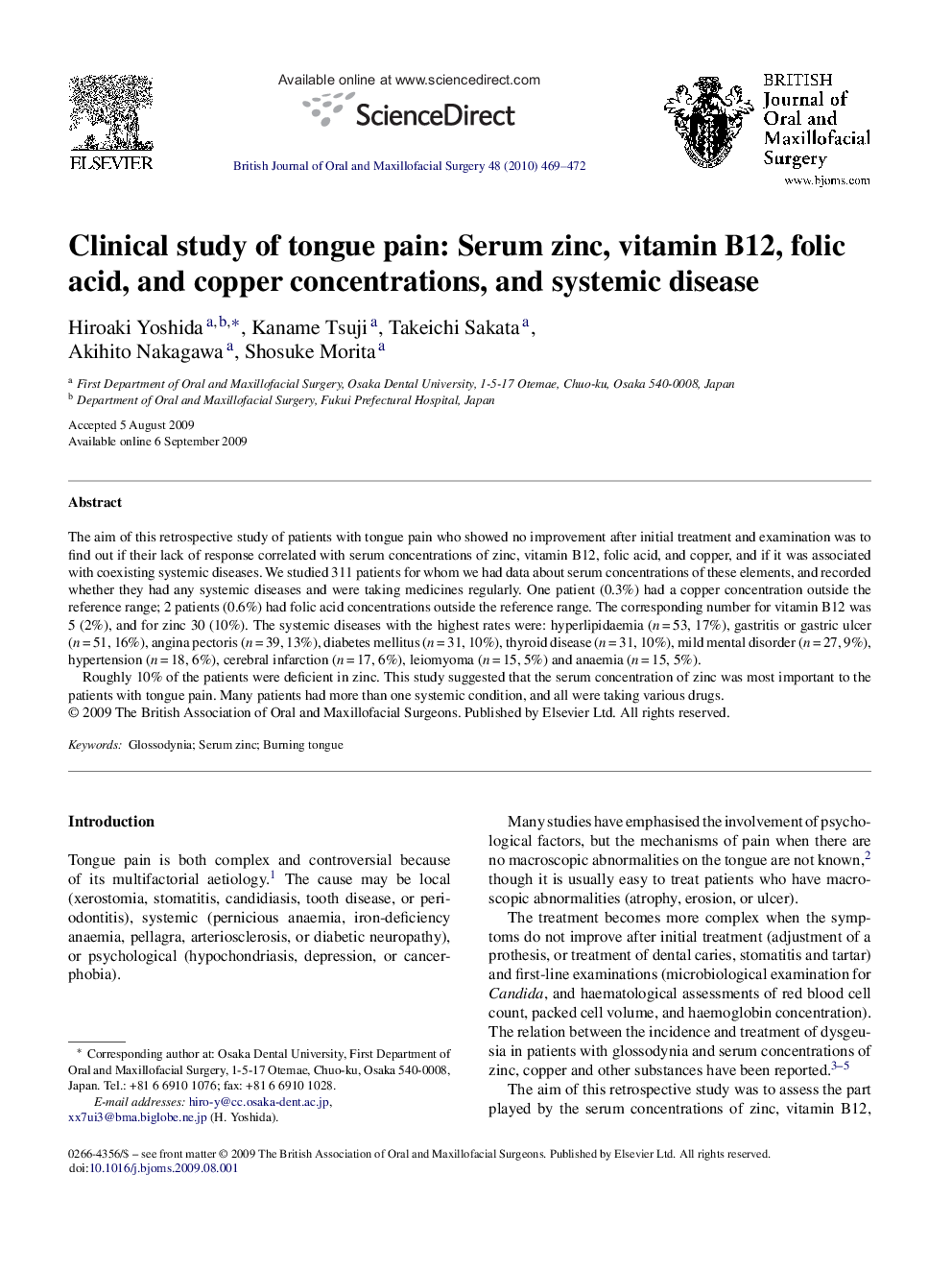| کد مقاله | کد نشریه | سال انتشار | مقاله انگلیسی | نسخه تمام متن |
|---|---|---|---|---|
| 3124561 | 1583755 | 2010 | 4 صفحه PDF | دانلود رایگان |

The aim of this retrospective study of patients with tongue pain who showed no improvement after initial treatment and examination was to find out if their lack of response correlated with serum concentrations of zinc, vitamin B12, folic acid, and copper, and if it was associated with coexisting systemic diseases. We studied 311 patients for whom we had data about serum concentrations of these elements, and recorded whether they had any systemic diseases and were taking medicines regularly. One patient (0.3%) had a copper concentration outside the reference range; 2 patients (0.6%) had folic acid concentrations outside the reference range. The corresponding number for vitamin B12 was 5 (2%), and for zinc 30 (10%). The systemic diseases with the highest rates were: hyperlipidaemia (n = 53, 17%), gastritis or gastric ulcer (n = 51, 16%), angina pectoris (n = 39, 13%), diabetes mellitus (n = 31, 10%), thyroid disease (n = 31, 10%), mild mental disorder (n = 27, 9%), hypertension (n = 18, 6%), cerebral infarction (n = 17, 6%), leiomyoma (n = 15, 5%) and anaemia (n = 15, 5%).Roughly 10% of the patients were deficient in zinc. This study suggested that the serum concentration of zinc was most important to the patients with tongue pain. Many patients had more than one systemic condition, and all were taking various drugs.
Journal: British Journal of Oral and Maxillofacial Surgery - Volume 48, Issue 6, September 2010, Pages 469–472